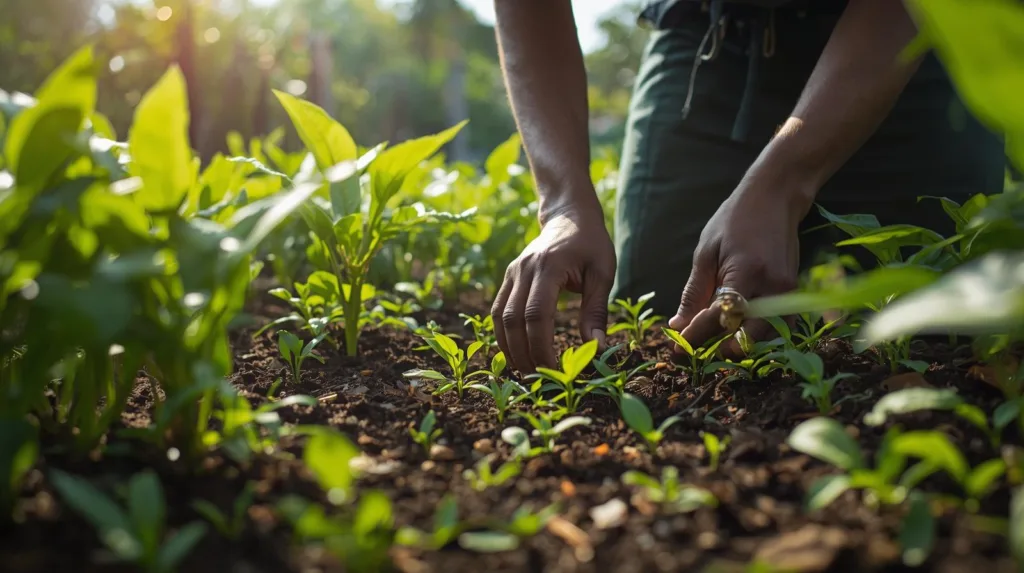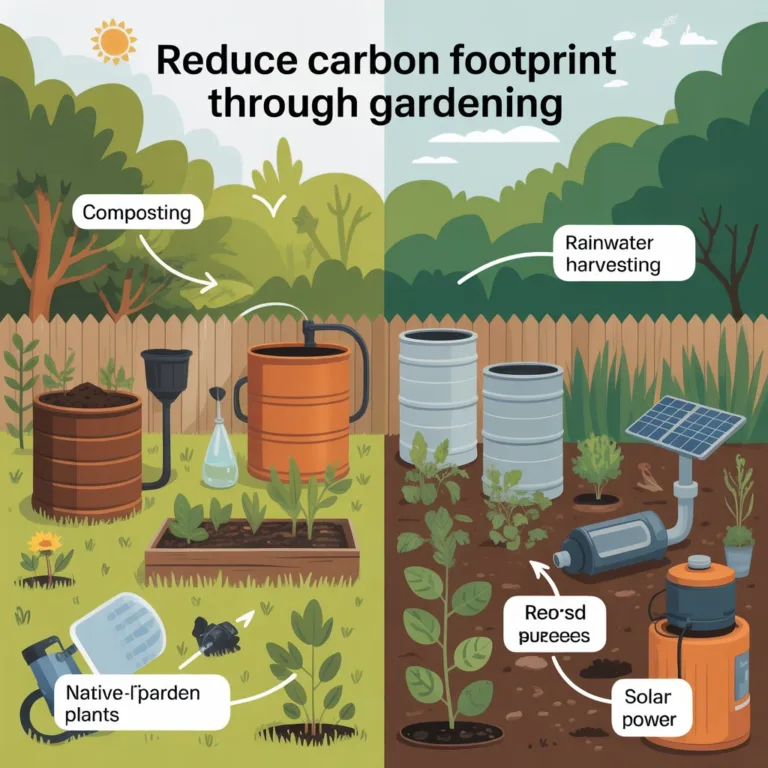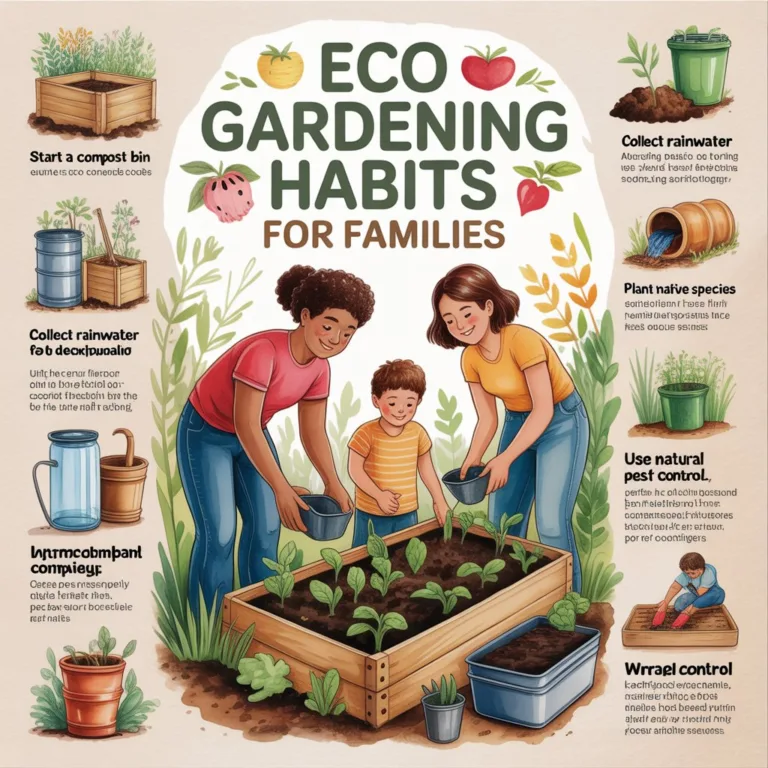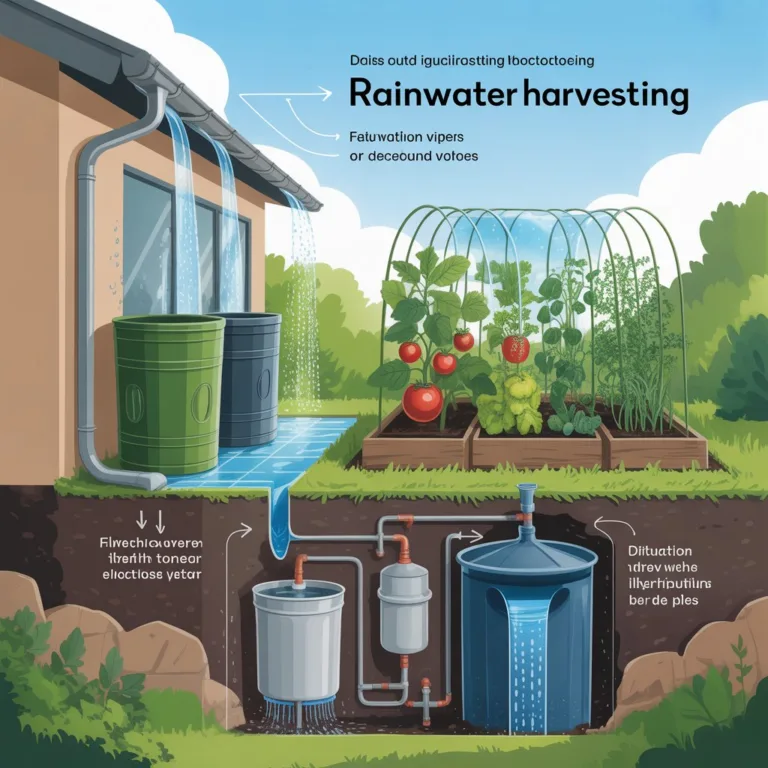Growing plants without chemical pesticides is an essential step toward sustainable gardening, healthier food production, and environmental conservation. For gardeners, hobbyists, and small-scale farmers, avoiding chemicals does not mean sacrificing productivity. On the contrary, with the right techniques, you can cultivate vibrant gardens, healthy crops, and eco-friendly landscapes while protecting soil, water, and pollinators.

Pesticide-free gardening emphasizes natural solutions, preventive strategies, and ecological balance. By understanding pest behavior, soil health, and companion planting, you can create a thriving ecosystem where plants naturally resist diseases and insects. Beyond the immediate benefits to plants and humans, reducing chemical pesticide use helps conserve biodiversity and supports sustainable food systems.
Understanding the Importance of Chemical-Free Gardening
Environmental Impacts of Chemical Pesticides
Chemical pesticides may effectively control pests in the short term, but they have several long-term environmental consequences:
- Water Pollution: Runoff from treated gardens contaminates rivers, lakes, and groundwater.
- Soil Degradation: Pesticides can disrupt soil microbes essential for nutrient cycling.
- Biodiversity Loss: Beneficial insects, birds, and soil organisms are harmed, upsetting natural ecological balance.
- Resistance Development: Over time, pests can develop resistance, requiring increasingly potent chemicals.
Choosing natural alternatives protects the environment while encouraging resilient ecosystems in your garden.
Health Benefits of Growing Without Pesticides
- Reduced Chemical Residue: Food grown without pesticides contains fewer residues, making it safer for consumption.
- Safer for Children and Pets: Eliminating harmful chemicals reduces accidental exposure risks.
- Enhanced Nutritional Value: Some studies suggest that organically grown plants may have higher antioxidant levels.
Soil Health: The Foundation of Pesticide-Free Gardening
Enriching Soil Naturally
Healthy soil is a plant’s first line of defense against pests. Nutrient-rich, biologically active soil creates strong, resilient plants that are less vulnerable to attacks.
- Composting: Use kitchen scraps, garden waste, and organic matter to produce nutrient-dense compost.
- Cover Crops: Planting legumes or clover improves nitrogen levels and prevents soil erosion.
- Mulching: Organic mulch retains moisture, moderates temperature, and suppresses weeds, reducing pest habitat.
Soil Microbes and Beneficial Organisms
A robust soil ecosystem fosters beneficial microbes that outcompete pathogens and support plant immunity. Adding worm castings, mycorrhizal fungi, or compost tea can boost microbial diversity, creating natural protection for your garden.
Natural Pest Control Strategies
Encouraging Beneficial Insects
Predatory insects help maintain pest populations naturally:
- Ladybugs feed on aphids and mites.
- Lacewings consume caterpillars and small larvae.
- Parasitic Wasps target pest eggs.
Planting insectary plants such as dill, fennel, and marigolds attracts these helpful species to your garden.
Companion Planting
Certain plant combinations repel pests or confuse them:
- Basil and Tomatoes: Basil repels whiteflies and improves tomato growth.
- Marigolds and Vegetables: Marigolds deter nematodes and beetles.
- Carrots and Onions: The strong scent of onions masks carrots from carrot flies.
Physical Barriers
Simple physical interventions can prevent pest access:
- Row Covers and Nets: Lightweight fabrics protect seedlings from insects and birds.
- Copper Tape: Slugs avoid crossing copper surfaces.
- Sticky Traps: Capture flying pests without chemicals.
Homemade Organic Pesticides
Using natural ingredients can reduce pest pressure while being safe for plants and the environment.
Garlic and Chili Spray
- Blend garlic cloves and hot chili peppers with water.
- Strain and spray on leaves to deter aphids, beetles, and caterpillars.
Neem Oil
- Extracted from neem seeds, neem oil interferes with insect feeding and reproduction.
- Effective against aphids, whiteflies, and mealybugs when diluted according to instructions.
Soap and Water Solution
- Mix mild liquid soap with water to spray on plants.
- Helps remove soft-bodied pests like aphids and spider mites.
- Avoid harsh detergents that can damage plant leaves.
Crop Rotation and Plant Diversity
Why Rotate Crops
Planting the same crop in the same location every season invites pests and diseases. Rotate crops to:
- Break pest and disease life cycles.
- Maintain soil fertility.
- Encourage a balanced garden ecosystem.
Intercropping and Diversity
Growing a mix of vegetables, herbs, and flowers confuses pests, reducing their impact:
- Plant tall and short species together to create microclimates.
- Use fragrant herbs like mint or rosemary to mask vegetable scents.
- Include pollinator-friendly flowers to attract beneficial insects.
Mulching, Watering, and Garden Hygiene
Mulching Techniques
- Use straw, leaves, or wood chips to cover bare soil.
- Mulch prevents weeds, retains moisture, and creates a barrier against soil-borne pests.
Proper Watering
- Water at the base of plants to avoid wet foliage, which attracts fungal infections.
- Drip irrigation or soaker hoses provide consistent moisture while minimizing pest-friendly conditions.
Garden Hygiene
- Remove dead leaves, fallen fruits, and infected plants promptly.
- Clean tools to prevent disease spread.
- Rotate pots and containers to reduce pest hotspots.
Building Natural Plant Immunity
Fertilization with Organic Matter
Strong plants are more resilient. Feed plants with:
- Compost: Provides slow-release nutrients.
- Seaweed Extracts: Boost growth and immunity.
- Worm Castings: Enhance soil microbes and plant health.
Stress Reduction
Plants under stress are more vulnerable to pests:
- Avoid overwatering or underwatering.
- Maintain consistent light exposure for indoor plants.
- Prune carefully to prevent stress wounds.
Pest Monitoring and Early Intervention
Regular Inspections
- Examine leaves, stems, and roots frequently.
- Look for eggs, larvae, or adult insects.
- Early detection prevents infestations from escalating.
Manual Removal
- Handpick larger pests like caterpillars or beetles.
- Use water sprays to dislodge small insects.
- Maintain logs to track pest patterns over the season.
Integrating Animals for Pest Control
Chickens and Ducks
- Chickens eat slugs, beetles, and other insects.
- Ducks are excellent for rice paddies and wet gardens.
Frogs and Toads
- Amphibians consume a variety of insects, helping maintain balance.
Encouraging a small natural predator population enhances your pesticide-free strategy without chemicals.
Seasonal Considerations
Spring
- Focus on soil preparation and early pest prevention.
- Use row covers and trap crops to protect seedlings.
Summer
- Maintain hydration and monitor for heat-stressed plants.
- Encourage pollinators for fruiting vegetables and flowers.
Fall
- Rotate crops and plant cover crops for soil restoration.
- Remove annual plants to reduce overwintering pests.
Winter
- Clean and mulch garden beds to protect soil life.
- Plan next season’s planting to avoid pest hotspots.
Educational and Community Benefits
Growing without chemical pesticides has additional value:
- Educational Projects: Teach children and students about ecology, biology, and sustainable food systems.
- Community Gardens: Promote collective learning and healthier local food production.
- Workshops and Demonstrations: Show practical methods of pesticide-free gardening to inspire wider adoption.
Challenges and Troubleshooting
- Persistent Pest Infestations: Identify the specific pest and apply targeted natural treatments.
- Fungal Issues: Improve air circulation and use neem or baking soda sprays.
- Low Yields: Check soil health, nutrient availability, and water management.
By growing without chemical pesticides, gardeners and farmers create a healthier, more sustainable environment. Utilizing natural pest control, enriching soil, planting diverse crops, and maintaining garden hygiene ensures resilient, productive gardens. The practice empowers you to grow nutritious food, protect pollinators, and reduce your environmental footprint.
Experimenting with different methods, observing pest and plant interactions, and combining preventive measures with natural remedies can transform your garden into a thriving ecosystem. Share your experiences, explore new techniques, and continue expanding your pesticide-free garden.

Sofia Greenfield is a sustainable gardening expert and environmental educator who inspires families and urban gardeners to cultivate green spaces responsibly. She shares practical tips on growing vegetables, herbs, and flowers using eco-friendly and recycled materials, emphasizing the joy of gardening while protecting the planet.



